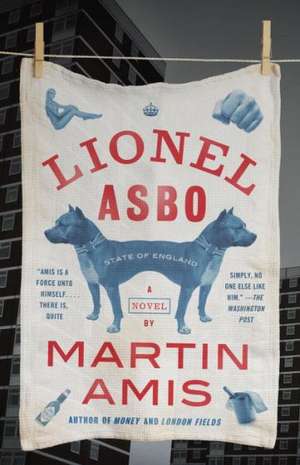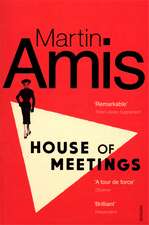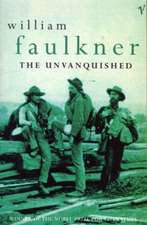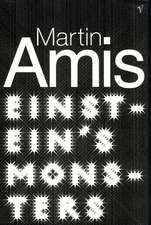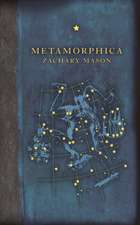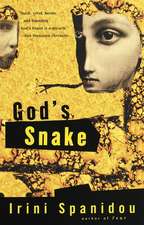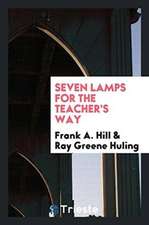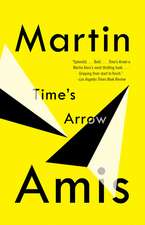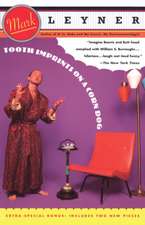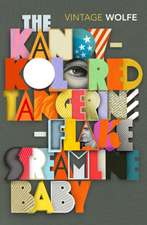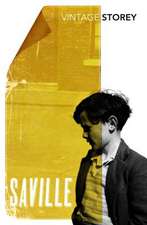Lionel Asbo: State of England
Autor Martin Amisen Limba Engleză Paperback – 6 mai 2013
Preț: 83.52 lei
Nou
Puncte Express: 125
Preț estimativ în valută:
15.98€ • 17.41$ • 13.47£
15.98€ • 17.41$ • 13.47£
Carte indisponibilă temporar
Doresc să fiu notificat când acest titlu va fi disponibil:
Se trimite...
Preluare comenzi: 021 569.72.76
Specificații
ISBN-13: 9780307948083
ISBN-10: 0307948080
Pagini: 255
Dimensiuni: 140 x 203 x 23 mm
Greutate: 0.27 kg
Editura: VINTAGE BOOKS
ISBN-10: 0307948080
Pagini: 255
Dimensiuni: 140 x 203 x 23 mm
Greutate: 0.27 kg
Editura: VINTAGE BOOKS
Notă biografică
MARTIN AMIS is the author of twelve previous novels, the memoir Experience, two collections of stories and six of nonfiction. He lives in Brooklyn.
Extras
Excerpted from the Hardcover Edition
2006 Desmond Pepperdine, Renaissance Boy
1.
Dear Jennaveieve,
I’m having an affair with an older woman. Shes’ a lady of some sophistication, and makes a refreshing change from the teen agers I know (like Alektra for example, or Chanel.) The sex is fantastic and I think I’m in love. But ther’es one very serious complication and i’ts this; shes’ my Gran!
Desmond Pepperdine (Desmond, Des, Desi), the author of this document, was fifteen and a half. And his handwriting, nowadays, was self-consciously elegant; the letters used to slope backward, but he patiently trained them to slope forward; and when everything was smoothly conjoined he started adding little flourishes (his e was positively ornate—like a w turned on its side). Using the computer he now shared with his uncle, Des had given himself a course on calligraphy, among several other courses.
On the plus-side, the age-difference is surprisingly
He crossed that bit out, and resumed.
It started a fort-night ago when she rang up and said its the plumbing again love. And I said nan? I’ll be right over. She lives in a granny flat under a house about a mile away and theres allways some thing wrong with it’s plumbing. Now I’m no plumber but I learnd a bit from my Uncle George whose in the trade. I sorted it out for her and she said why not stay for a few drink’s?
Calligraphy (and sociology, and anthropology, and psychology), but not yet punctuation. He was a good little speller, Des, but he knew how weak his punctuation was because he had just begun a course on it. And punctuation, he (quite rightly) intuited, was something of an art.
So we had a few Dubonnet’s which I’m not used to, and she was giving me these funny look’s. She’s all ways got the Beatles’ on and she was playing all the slow one’s like Golden Slumber’s, Yester-day, and Sh’es Leaving Home. Then gran says its so hot I’ll just slip in to my night-dress. And she came back in a babydoll!
He was trying to give himself an education—not at Squeers Free, recently singled out, he read in the Diston Gazette, as the worst school in England. But his understanding of the planet and the universe had inconceivable voids in it. He was repeatedly amazed by the tonnage of what he didn’t know.
So we had a few more drink’s, and I was noticing how well preserved she is. She’s taken good care of herself and shes really fit considering the life shes’ led. So after a few more drink’s she says are’nt you frying alive in that blazer? Come over here handsome, and give us a cuddle! Well what could I do. She put her hand on my thigh and slid it up my short’s. Well I’m only human aren’t I? The stereo was playing I Should Of Known Better—but one thing lead to another, and it was mind blowing!
For instance, the only national newspaper Des had ever read was the Morning Lark. And Jennaveieve, his addressee, was its agony aunt—or better say its ecstasy aunt. The page she presided over consisted of detailed accounts of perhaps wholly imaginary liaisons, and her replies consisted of a lewd pun followed by an exclamation mark. Desmond’s tale was not imaginary.
Now you must believe me that this is all very “out of character.” It was never mean’t to be! Okay we live in Diston, where that sort of thing isnt much frownd up on. And, okay my Gran had a mischivous youth. But she’s a respectable woman. The thing is shes got a big birthday coming up and I reckon its turnd her head. As for myself, my background is strict christian at least on my fathers side (Pentecostalist.) And you see Jennaveieve, I’ve been very unhappy since my Mum, Cilla passed away three year’s ago. I can’t find the word’s. I needed gentleness. And when gran touched me like that. Well.
Des had no intention of actually mailing his letter to Jennaveieve (whose partly naked body also adorned the page headed, not Ecstasy Aunt, but Agony Angel). He was writing it simply to ease his own mind. He imagined Jennaveieve’s dependably non-judgemental reply. Something like: At least you’re having a Gran old time! Des wrote on.
Apart from the legal question which is worrying me sick, theres another huge problem. Her son, Lionel is my uncle, and hes’ like a father to me when he’s not in prison. See hes an extremely violent criminal and if he find’s out I’m giving his Mum one, hell fucking kill me. Litrally!
It might be argued that this was a grave underestimation of Lionel’s views on trespass and reprisal . . . The immediate goal, for Des, was to master the apostrophe. After that, the arcana of the colon and the semicolon, the hyphen, the dash, the slash.
On the plus-side, the age-gap is not that big. See Granny Grace was an early starter, and fell pregnant when she was 12, just like my M
He heard the thick clunks of the locks, he looked with horror at his watch, he tried to stand upright on deadened legs—and suddenly Lionel was there.
2
Lionel was there, a great white shape, leaning on the open door with his brow pressed to his raised wrist, panting huskily, and giving off a faint grey steam in his purple singlet (the lift was misbehaving, and the flat was on the thirty-third floor—but then again Lionel could give off steam while dozing in bed on a quiet afternoon). Under his other arm he was carrying a consignment of lager. Two dozen, covered in polythene. Brand: Cobra.
“You’re back early, Uncle Li.”
He held up a callused palm. They waited. In his outward appearance Lionel was brutally generic—the slablike body, the full lump of the face, the tight-shaved crown with its tawny stubble. Out in the great world city, there were hundreds of thousands of young men who looked pretty much like Lionel Asbo. In certain lights and settings he resembled, some said, the England and Manchester United prodigy, striker Wayne Rooney: not exceptionally tall, and not fat, but exceptionally broad and exceptionally deep (Des saw his uncle every day—and Lionel was always one size bigger than expected). He even had Rooney’s gap-toothed smile. Well, the upper incisors were widely spaced, yet Lionel very seldom smiled. You only saw them when he sneered.
“ . . . What you doing there with that pen? What’s that you writing? Guiss it.”
Des thought fast. “Uh, it’s about poetry, Uncle Li.”
“Poetry?” said Lionel and started back.
“Yeah. Poem called The Faerie Queene.”
“The what? . . . I despair of you sometimes, Des. Why aren’t you out smashing windows? It’s not healthy. Oh yeah, listen to this. You know that bloke I bashed up in the pub the other Friday? Mr. ‘Ross Knowles,’ if you please? He’s only pressing charges. Grassed me. Would you credit it.”
Desmond knew how Lionel was likely to feel about such a move. One night last year Lionel came home to find Des on the black leatherette sofa, innocently slumped in front of Crimewatch. The result was one of the longest and noisiest slappings he had ever received at his uncle’s hands. They asking members of the public, said Lionel, standing in front of the giant screen with his arms akimbo, to fink on they own neighbours. Crimewatch, it’s like a . . . like a programme for paedophiles, that is. It disgusts me. Now Des said,
“He went to the law? Aw, that’s . . . That’s . . . the lowest of the low, that is. What you going to do, Uncle Li?”
“Well I’ve been asking around and it turns out he’s a loner. Lives in a bedsit. So there’s no one I can go and terrify. Except him.”
“But he’s still in hospital.”
“So? I’ll take him a bunch of grapes. You feed the dogs?”
“Yeah. Only we’re out of Tabasco.”
The dogs, Joe and Jeff, were Lionel’s psychopathic pitbulls. Their domain was the narrow balcony off the kitchen, where, all day, the two of them snarled, paced, and swivelled—and prosecuted their barking war with the pack of Rottweilers that lived on the roof of the next high-rise along.
“Don’t lie to me, Desmond,” said Lionel quietly. “Don’t ever lie to me.”
“I’m not!”
“You told me you fed them. And you never give them they Tabasco!”
“Uncle Li, I didn’t have the cash! They’ve only got the big bottles and they’re five ninety-five!”
“That’s no excuse. You should’ve nicked one. You spent thirty quid, thirty quid, on a fucking dictionary, and you can’t spare a couple of bob for the dogs.”
“I never spent thirty quid! . . . Gran give it me. She won it on the crossword. The prize crossword.”
“Joe and Jeff—they not pets, Desmond Pepperdine. They tools of me trade.”
Lionel’s trade was still something of a mystery to Des. He knew that part of it had to do with the very hairiest end of debt collection; and he knew that part of it involved “selling on” (Lionel’s word for selling on was reset). Des knew this by simple logic, because Extortion With Menaces and Receiving Stolen Property were what Lionel most often went to prison for . . . He stood there, Lionel, doing something he was very good at: disseminating tension. Des loved him deeply and more or less unquestioningly (I wouldn’t be here today without Uncle Li, he often said to himself). But he always felt slightly ill in his presence. Not ill at ease. Ill.
“. . . You’re back early, Uncle Li,” he repeated as airily as he could. “Where you been?”
“Cynthia. I don’t know why I bestir meself. Gaa, the state of that Cynthia.”
The spectral blonde called Cynthia, or Cymfia, as he pronounced it, was the nearest thing Lionel had to a childhood sweetheart, in that he started sleeping with her when she was ten (and Lionel was nine). She was also the nearest thing he had to a regular girlfriend, in that he saw her regularly—once every four or five months. Of women in general, Lionel sometimes had this to say: More trouble than they worth, if you ask me. Women? I’m not bothered. I’m not bothered about women. Des thought that this was probably just as well: women, in general, should be very pleased that Lionel wasn’t bothered about them. One woman bothered him—yes, but she bothered everyone. She was a promiscuous beauty named Gina Drago . . .
“Des. That Cynthia,” said Lionel with a surfeited leer. “Christ. Even uh, during the uh, you know, during the other, I was thinking, Lionel, you wasting you youth. Lionel, go home. Go home, boy. Go home and watch some decent porn.”
Des picked up the Mac and got smartly to his feet. “Here. I’m off out anyway.”
“Yeah? Where? Seeing that Alektra?”
“Nah. Meet up with me mates.”
“Well do something useful. Steal a car. Eh, guess what. You Uncle Ringo won the Lottery.”
“He never. How much?”
“Twelve pounds fifty. It’s a mug’s game, the Lottery, if you ask me. Oy. I’ve been meaning to ask you something. When you creep off at night . . .”
Des was standing there holding the Mac in both hands, like a waiter with a tray. Lionel was standing there with the Cobras in both hands, like a drayman with a load.
“When you creep off at night, you carry a blade?”
“Uncle Li! You know me.”
“Well you should. For you own security. And you peace of mind. You going to get youself striped. Or worse. There’s no fistfights any more, not in Diston. There’s only knife fights. To the death. Or guns. Well,” he relented, “I suppose they can’t see you in the fucking dark.”
And Des just smiled with his clean white teeth.
“Take a knife from the drawer on you way out. One of them black ones.”
Des didn’t meet up with his mates. (He didn’t have any mates. And he didn’t want any mates.) He crept off to his gran’s.
As we know, Desmond Pepperdine was fifteen. Grace Pepperdine, who had led a very demanding life and borne many, many children, was a reasonably presentable thirty-nine. Lionel Asbo was a heavily weathered twenty-one.
. . . In dusty Diston (also known as Diston Town or, more simply, Town), nothing—and no one—was over sixty years old. On an international chart for life expectancy, Diston would appear between Benin and Djibouti (fifty-four for men and fifty-seven for women). And that wasn’t all. On an international chart for fertility rates, Diston would appear between Malawi and Yemen (six children per couple—or per single mother). Thus the age structure in Diston was strangely shaped. But still: Town would not be thinning out.
Des was fifteen. Lionel was twenty-one. Grace was thirty-nine . . .
He bent to unlatch the gate, he skipped down the seven stone steps, he knocked the knocker. He listened. Here came the shuffle of her fluffy slippers, and in the background (as ever) the melodic purity of a Beatles song. Her all-time favourite: “When I’m Sixty-Four.”
3
Dawn simmered over the incredible edifice—the stacked immensity of Avalon Tower.
On the curtained balcony (the size of a tight parking space), Joe lay dreaming of other dogs, enemy dogs, jewel-eyed hellhounds. He barked in his sleep. Jeff rolled over with a blissful sigh.
In bedroom number one (the size of a low-ceilinged squash court, with considerable distances between things, between the door and the bed, between the bed and the wardrobe, between the wardrobe and the free-standing swing mirror), Lionel lay dreaming of prison and his five brothers. They were all in the commissary, queuing for Mars Bars.
And in bedroom number two (the size of a generous four-poster), Des lay dreaming of a ladder that rose up to heaven.
Day came. Lionel left early with Joe and Jeff (business). Des dreamed on.
For six or seven months now he had been sensing it: the pangs and quickenings of intelligence within his being. Cilla, Des’s mother, died when he was twelve, and for three years he entered a kind of trance, a leaden sleep; all was numb and Mumless . . . Then he woke up.
He started keeping a diary—and a notebook. There was a voice in his head, and he listened to it and he talked to it. No, he communed with it, he communed with the whispers of his intelligence. Did everybody have one, an inner voice? An inner voice that was cleverer than they were? He thought probably not. Then where did it come from?
Des looked to his family tree—to his personal Tree of Knowledge.
Well, Grace Pepperdine, Granny Grace, had not attended all that closely to her education, for obvious reasons: she was the mother of seven children by the age of nineteen. Cilla came first. All the rest were boys: John (now a plasterer), Paul (a foreman), George (a plumber), Ringo (unemployed), and Stuart (a seedy registrar). Having run out of Beatles (including the “forgotten” Beatle, Stuart Sutcliffe), Grace exasperatedly christened her seventh child Lionel (after a much lesser hero, the choreographer Lionel Blair). Lionel Asbo, as he would later become, was the youngest of a very large family superintended by a single parent who was barely old enough to vote.
2006 Desmond Pepperdine, Renaissance Boy
1.
Dear Jennaveieve,
I’m having an affair with an older woman. Shes’ a lady of some sophistication, and makes a refreshing change from the teen agers I know (like Alektra for example, or Chanel.) The sex is fantastic and I think I’m in love. But ther’es one very serious complication and i’ts this; shes’ my Gran!
Desmond Pepperdine (Desmond, Des, Desi), the author of this document, was fifteen and a half. And his handwriting, nowadays, was self-consciously elegant; the letters used to slope backward, but he patiently trained them to slope forward; and when everything was smoothly conjoined he started adding little flourishes (his e was positively ornate—like a w turned on its side). Using the computer he now shared with his uncle, Des had given himself a course on calligraphy, among several other courses.
On the plus-side, the age-difference is surprisingly
He crossed that bit out, and resumed.
It started a fort-night ago when she rang up and said its the plumbing again love. And I said nan? I’ll be right over. She lives in a granny flat under a house about a mile away and theres allways some thing wrong with it’s plumbing. Now I’m no plumber but I learnd a bit from my Uncle George whose in the trade. I sorted it out for her and she said why not stay for a few drink’s?
Calligraphy (and sociology, and anthropology, and psychology), but not yet punctuation. He was a good little speller, Des, but he knew how weak his punctuation was because he had just begun a course on it. And punctuation, he (quite rightly) intuited, was something of an art.
So we had a few Dubonnet’s which I’m not used to, and she was giving me these funny look’s. She’s all ways got the Beatles’ on and she was playing all the slow one’s like Golden Slumber’s, Yester-day, and Sh’es Leaving Home. Then gran says its so hot I’ll just slip in to my night-dress. And she came back in a babydoll!
He was trying to give himself an education—not at Squeers Free, recently singled out, he read in the Diston Gazette, as the worst school in England. But his understanding of the planet and the universe had inconceivable voids in it. He was repeatedly amazed by the tonnage of what he didn’t know.
So we had a few more drink’s, and I was noticing how well preserved she is. She’s taken good care of herself and shes really fit considering the life shes’ led. So after a few more drink’s she says are’nt you frying alive in that blazer? Come over here handsome, and give us a cuddle! Well what could I do. She put her hand on my thigh and slid it up my short’s. Well I’m only human aren’t I? The stereo was playing I Should Of Known Better—but one thing lead to another, and it was mind blowing!
For instance, the only national newspaper Des had ever read was the Morning Lark. And Jennaveieve, his addressee, was its agony aunt—or better say its ecstasy aunt. The page she presided over consisted of detailed accounts of perhaps wholly imaginary liaisons, and her replies consisted of a lewd pun followed by an exclamation mark. Desmond’s tale was not imaginary.
Now you must believe me that this is all very “out of character.” It was never mean’t to be! Okay we live in Diston, where that sort of thing isnt much frownd up on. And, okay my Gran had a mischivous youth. But she’s a respectable woman. The thing is shes got a big birthday coming up and I reckon its turnd her head. As for myself, my background is strict christian at least on my fathers side (Pentecostalist.) And you see Jennaveieve, I’ve been very unhappy since my Mum, Cilla passed away three year’s ago. I can’t find the word’s. I needed gentleness. And when gran touched me like that. Well.
Des had no intention of actually mailing his letter to Jennaveieve (whose partly naked body also adorned the page headed, not Ecstasy Aunt, but Agony Angel). He was writing it simply to ease his own mind. He imagined Jennaveieve’s dependably non-judgemental reply. Something like: At least you’re having a Gran old time! Des wrote on.
Apart from the legal question which is worrying me sick, theres another huge problem. Her son, Lionel is my uncle, and hes’ like a father to me when he’s not in prison. See hes an extremely violent criminal and if he find’s out I’m giving his Mum one, hell fucking kill me. Litrally!
It might be argued that this was a grave underestimation of Lionel’s views on trespass and reprisal . . . The immediate goal, for Des, was to master the apostrophe. After that, the arcana of the colon and the semicolon, the hyphen, the dash, the slash.
On the plus-side, the age-gap is not that big. See Granny Grace was an early starter, and fell pregnant when she was 12, just like my M
He heard the thick clunks of the locks, he looked with horror at his watch, he tried to stand upright on deadened legs—and suddenly Lionel was there.
2
Lionel was there, a great white shape, leaning on the open door with his brow pressed to his raised wrist, panting huskily, and giving off a faint grey steam in his purple singlet (the lift was misbehaving, and the flat was on the thirty-third floor—but then again Lionel could give off steam while dozing in bed on a quiet afternoon). Under his other arm he was carrying a consignment of lager. Two dozen, covered in polythene. Brand: Cobra.
“You’re back early, Uncle Li.”
He held up a callused palm. They waited. In his outward appearance Lionel was brutally generic—the slablike body, the full lump of the face, the tight-shaved crown with its tawny stubble. Out in the great world city, there were hundreds of thousands of young men who looked pretty much like Lionel Asbo. In certain lights and settings he resembled, some said, the England and Manchester United prodigy, striker Wayne Rooney: not exceptionally tall, and not fat, but exceptionally broad and exceptionally deep (Des saw his uncle every day—and Lionel was always one size bigger than expected). He even had Rooney’s gap-toothed smile. Well, the upper incisors were widely spaced, yet Lionel very seldom smiled. You only saw them when he sneered.
“ . . . What you doing there with that pen? What’s that you writing? Guiss it.”
Des thought fast. “Uh, it’s about poetry, Uncle Li.”
“Poetry?” said Lionel and started back.
“Yeah. Poem called The Faerie Queene.”
“The what? . . . I despair of you sometimes, Des. Why aren’t you out smashing windows? It’s not healthy. Oh yeah, listen to this. You know that bloke I bashed up in the pub the other Friday? Mr. ‘Ross Knowles,’ if you please? He’s only pressing charges. Grassed me. Would you credit it.”
Desmond knew how Lionel was likely to feel about such a move. One night last year Lionel came home to find Des on the black leatherette sofa, innocently slumped in front of Crimewatch. The result was one of the longest and noisiest slappings he had ever received at his uncle’s hands. They asking members of the public, said Lionel, standing in front of the giant screen with his arms akimbo, to fink on they own neighbours. Crimewatch, it’s like a . . . like a programme for paedophiles, that is. It disgusts me. Now Des said,
“He went to the law? Aw, that’s . . . That’s . . . the lowest of the low, that is. What you going to do, Uncle Li?”
“Well I’ve been asking around and it turns out he’s a loner. Lives in a bedsit. So there’s no one I can go and terrify. Except him.”
“But he’s still in hospital.”
“So? I’ll take him a bunch of grapes. You feed the dogs?”
“Yeah. Only we’re out of Tabasco.”
The dogs, Joe and Jeff, were Lionel’s psychopathic pitbulls. Their domain was the narrow balcony off the kitchen, where, all day, the two of them snarled, paced, and swivelled—and prosecuted their barking war with the pack of Rottweilers that lived on the roof of the next high-rise along.
“Don’t lie to me, Desmond,” said Lionel quietly. “Don’t ever lie to me.”
“I’m not!”
“You told me you fed them. And you never give them they Tabasco!”
“Uncle Li, I didn’t have the cash! They’ve only got the big bottles and they’re five ninety-five!”
“That’s no excuse. You should’ve nicked one. You spent thirty quid, thirty quid, on a fucking dictionary, and you can’t spare a couple of bob for the dogs.”
“I never spent thirty quid! . . . Gran give it me. She won it on the crossword. The prize crossword.”
“Joe and Jeff—they not pets, Desmond Pepperdine. They tools of me trade.”
Lionel’s trade was still something of a mystery to Des. He knew that part of it had to do with the very hairiest end of debt collection; and he knew that part of it involved “selling on” (Lionel’s word for selling on was reset). Des knew this by simple logic, because Extortion With Menaces and Receiving Stolen Property were what Lionel most often went to prison for . . . He stood there, Lionel, doing something he was very good at: disseminating tension. Des loved him deeply and more or less unquestioningly (I wouldn’t be here today without Uncle Li, he often said to himself). But he always felt slightly ill in his presence. Not ill at ease. Ill.
“. . . You’re back early, Uncle Li,” he repeated as airily as he could. “Where you been?”
“Cynthia. I don’t know why I bestir meself. Gaa, the state of that Cynthia.”
The spectral blonde called Cynthia, or Cymfia, as he pronounced it, was the nearest thing Lionel had to a childhood sweetheart, in that he started sleeping with her when she was ten (and Lionel was nine). She was also the nearest thing he had to a regular girlfriend, in that he saw her regularly—once every four or five months. Of women in general, Lionel sometimes had this to say: More trouble than they worth, if you ask me. Women? I’m not bothered. I’m not bothered about women. Des thought that this was probably just as well: women, in general, should be very pleased that Lionel wasn’t bothered about them. One woman bothered him—yes, but she bothered everyone. She was a promiscuous beauty named Gina Drago . . .
“Des. That Cynthia,” said Lionel with a surfeited leer. “Christ. Even uh, during the uh, you know, during the other, I was thinking, Lionel, you wasting you youth. Lionel, go home. Go home, boy. Go home and watch some decent porn.”
Des picked up the Mac and got smartly to his feet. “Here. I’m off out anyway.”
“Yeah? Where? Seeing that Alektra?”
“Nah. Meet up with me mates.”
“Well do something useful. Steal a car. Eh, guess what. You Uncle Ringo won the Lottery.”
“He never. How much?”
“Twelve pounds fifty. It’s a mug’s game, the Lottery, if you ask me. Oy. I’ve been meaning to ask you something. When you creep off at night . . .”
Des was standing there holding the Mac in both hands, like a waiter with a tray. Lionel was standing there with the Cobras in both hands, like a drayman with a load.
“When you creep off at night, you carry a blade?”
“Uncle Li! You know me.”
“Well you should. For you own security. And you peace of mind. You going to get youself striped. Or worse. There’s no fistfights any more, not in Diston. There’s only knife fights. To the death. Or guns. Well,” he relented, “I suppose they can’t see you in the fucking dark.”
And Des just smiled with his clean white teeth.
“Take a knife from the drawer on you way out. One of them black ones.”
Des didn’t meet up with his mates. (He didn’t have any mates. And he didn’t want any mates.) He crept off to his gran’s.
As we know, Desmond Pepperdine was fifteen. Grace Pepperdine, who had led a very demanding life and borne many, many children, was a reasonably presentable thirty-nine. Lionel Asbo was a heavily weathered twenty-one.
. . . In dusty Diston (also known as Diston Town or, more simply, Town), nothing—and no one—was over sixty years old. On an international chart for life expectancy, Diston would appear between Benin and Djibouti (fifty-four for men and fifty-seven for women). And that wasn’t all. On an international chart for fertility rates, Diston would appear between Malawi and Yemen (six children per couple—or per single mother). Thus the age structure in Diston was strangely shaped. But still: Town would not be thinning out.
Des was fifteen. Lionel was twenty-one. Grace was thirty-nine . . .
He bent to unlatch the gate, he skipped down the seven stone steps, he knocked the knocker. He listened. Here came the shuffle of her fluffy slippers, and in the background (as ever) the melodic purity of a Beatles song. Her all-time favourite: “When I’m Sixty-Four.”
3
Dawn simmered over the incredible edifice—the stacked immensity of Avalon Tower.
On the curtained balcony (the size of a tight parking space), Joe lay dreaming of other dogs, enemy dogs, jewel-eyed hellhounds. He barked in his sleep. Jeff rolled over with a blissful sigh.
In bedroom number one (the size of a low-ceilinged squash court, with considerable distances between things, between the door and the bed, between the bed and the wardrobe, between the wardrobe and the free-standing swing mirror), Lionel lay dreaming of prison and his five brothers. They were all in the commissary, queuing for Mars Bars.
And in bedroom number two (the size of a generous four-poster), Des lay dreaming of a ladder that rose up to heaven.
Day came. Lionel left early with Joe and Jeff (business). Des dreamed on.
For six or seven months now he had been sensing it: the pangs and quickenings of intelligence within his being. Cilla, Des’s mother, died when he was twelve, and for three years he entered a kind of trance, a leaden sleep; all was numb and Mumless . . . Then he woke up.
He started keeping a diary—and a notebook. There was a voice in his head, and he listened to it and he talked to it. No, he communed with it, he communed with the whispers of his intelligence. Did everybody have one, an inner voice? An inner voice that was cleverer than they were? He thought probably not. Then where did it come from?
Des looked to his family tree—to his personal Tree of Knowledge.
Well, Grace Pepperdine, Granny Grace, had not attended all that closely to her education, for obvious reasons: she was the mother of seven children by the age of nineteen. Cilla came first. All the rest were boys: John (now a plasterer), Paul (a foreman), George (a plumber), Ringo (unemployed), and Stuart (a seedy registrar). Having run out of Beatles (including the “forgotten” Beatle, Stuart Sutcliffe), Grace exasperatedly christened her seventh child Lionel (after a much lesser hero, the choreographer Lionel Blair). Lionel Asbo, as he would later become, was the youngest of a very large family superintended by a single parent who was barely old enough to vote.
Recenzii
“Amis is a force unto himself. . . . There is, quite simply, no one else like him.” —The Washington Post
“One of Amis’s funniest novels.” —The New Yorker
“Amis’s language is electric, his wit as sharp and precise than it has been in a decade.” —USA Today
“Full of heart and warmth . . . an unexpected reward for readers.” —People
“At heart an old-fashioned novel. . . . Amis is, like Dickens, an insistently moral writer, satire being an edifying genre with a noble cause: the improvement of society.” —The New York Times Book Review
“Breathtaking. . . . A great big confidence trick of a novel—an attack that turns into an embrace—a book that looks at us, laughs at us, looks at us harder, closer, and laughs at us harder and still more savagely. It is every inch the novel that we all deserve. So let’s give thanks that Martin Amis was bad enough and brave enough to write it.” —The Guardian (London)
“Shockingly, savagely funny. . . . Martin Amis represents the best of contemporary British literature—serious, hilarious, unsettling and provocative.” —Huffington Post
“Lionel Asbo bears a strong resemblance to the trio of novels . . . that made Amis’ reputation. . . . But Lionel Asbo may be even better than these ambitious works of fiction, more disciplined, funnier and more inventive. . . . To say that it is a return to form is an understatement—it might be his finest work.” —The Denver Post
“Full of Amis’ trademark virtuoso prose and wit. . . . Technically brilliant, dazzling in style, manic in energy and driven by a narrative momentum impossible to resist.” —The Toronto Star
“Little in fiction is more entertaining than Martin Amis at his pithy best. . . . ‘Lionel Asbo: State of England’ posits plenty of pith and cutting cultural criticism. It is wild. It is whacked. . . . [It] swings between wildly funny and harshly real.” —The Plain Dealer
“Amis’ portrait of someone who feeds Tabasco-splashed meat to his pit bulls in order to enrage them and toughen them up is surprisingly tender. . . . Fond, too, is Amis’ approach to Asbo’s mixed-race nephew, who serves as the vehicle for the moral conclusion of what in form is in fact not satire but a fairytale . . . Amis’ plea . . . would seem to be that nobody is beyond redemption.” —The Daily Beast
“An Amis sentence is mordant and coruscating, unpredictable and unruly, its own singular music. No surprise, these creations gather into paragraphs of propulsive insights, mini-essays in satiric spin and compression. There may be no better paragraph writer in the language, either. . . . The novel mingles in genuine characters with the usual comedic grotesques, and is tender, almost earnest, in its emotions.” —The Globe and Mail (Toronto)
“Crackles with brilliant prose and scathing satire. . . . He riffs like a jazz master, in and out of vernacular, with brief gusts of description, all driven by a tight bass line of suspense.” —Publishers Weekly
“In his 13th novel—one of his most compulsively readable—wily, dead-on satirist and consummate artist Martin Amis is grandly acerbic, funny and unnerving. . . . With crisp insights, rollicking storytelling and acrobatic wit, Amis has created a peppery, topsy-turvy Pygmalion fable and hilarious dismantlement of our cherished rags-to-riches fantasy.” —Kansas City Star
“This deliciously shivery, sly, and taunting page-turner provokes a fresh assessment of the poverty of place, mind, and spirit and the wondrous blossoming of against-all-odds goodness.” —Booklist
“One of Amis’s funniest novels.” —The New Yorker
“Amis’s language is electric, his wit as sharp and precise than it has been in a decade.” —USA Today
“Full of heart and warmth . . . an unexpected reward for readers.” —People
“At heart an old-fashioned novel. . . . Amis is, like Dickens, an insistently moral writer, satire being an edifying genre with a noble cause: the improvement of society.” —The New York Times Book Review
“Breathtaking. . . . A great big confidence trick of a novel—an attack that turns into an embrace—a book that looks at us, laughs at us, looks at us harder, closer, and laughs at us harder and still more savagely. It is every inch the novel that we all deserve. So let’s give thanks that Martin Amis was bad enough and brave enough to write it.” —The Guardian (London)
“Shockingly, savagely funny. . . . Martin Amis represents the best of contemporary British literature—serious, hilarious, unsettling and provocative.” —Huffington Post
“Lionel Asbo bears a strong resemblance to the trio of novels . . . that made Amis’ reputation. . . . But Lionel Asbo may be even better than these ambitious works of fiction, more disciplined, funnier and more inventive. . . . To say that it is a return to form is an understatement—it might be his finest work.” —The Denver Post
“Full of Amis’ trademark virtuoso prose and wit. . . . Technically brilliant, dazzling in style, manic in energy and driven by a narrative momentum impossible to resist.” —The Toronto Star
“Little in fiction is more entertaining than Martin Amis at his pithy best. . . . ‘Lionel Asbo: State of England’ posits plenty of pith and cutting cultural criticism. It is wild. It is whacked. . . . [It] swings between wildly funny and harshly real.” —The Plain Dealer
“Amis’ portrait of someone who feeds Tabasco-splashed meat to his pit bulls in order to enrage them and toughen them up is surprisingly tender. . . . Fond, too, is Amis’ approach to Asbo’s mixed-race nephew, who serves as the vehicle for the moral conclusion of what in form is in fact not satire but a fairytale . . . Amis’ plea . . . would seem to be that nobody is beyond redemption.” —The Daily Beast
“An Amis sentence is mordant and coruscating, unpredictable and unruly, its own singular music. No surprise, these creations gather into paragraphs of propulsive insights, mini-essays in satiric spin and compression. There may be no better paragraph writer in the language, either. . . . The novel mingles in genuine characters with the usual comedic grotesques, and is tender, almost earnest, in its emotions.” —The Globe and Mail (Toronto)
“Crackles with brilliant prose and scathing satire. . . . He riffs like a jazz master, in and out of vernacular, with brief gusts of description, all driven by a tight bass line of suspense.” —Publishers Weekly
“In his 13th novel—one of his most compulsively readable—wily, dead-on satirist and consummate artist Martin Amis is grandly acerbic, funny and unnerving. . . . With crisp insights, rollicking storytelling and acrobatic wit, Amis has created a peppery, topsy-turvy Pygmalion fable and hilarious dismantlement of our cherished rags-to-riches fantasy.” —Kansas City Star
“This deliciously shivery, sly, and taunting page-turner provokes a fresh assessment of the poverty of place, mind, and spirit and the wondrous blossoming of against-all-odds goodness.” —Booklist
Descriere
Descriere de la o altă ediție sau format:
Meanwhile, Des desires nothing more than books, a girl to love and to steer clear Uncle Li's psychotic pitbulls, Joe and Jeff. `One of Amis's funniest novels' New Yorker`A book that looks at us, laughs at us, looks at us harder, closer, and laughs at us harder and still more savagely' Observer
Meanwhile, Des desires nothing more than books, a girl to love and to steer clear Uncle Li's psychotic pitbulls, Joe and Jeff. `One of Amis's funniest novels' New Yorker`A book that looks at us, laughs at us, looks at us harder, closer, and laughs at us harder and still more savagely' Observer
